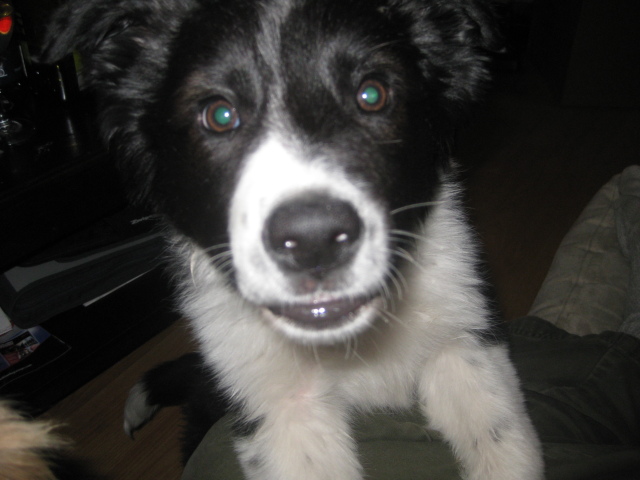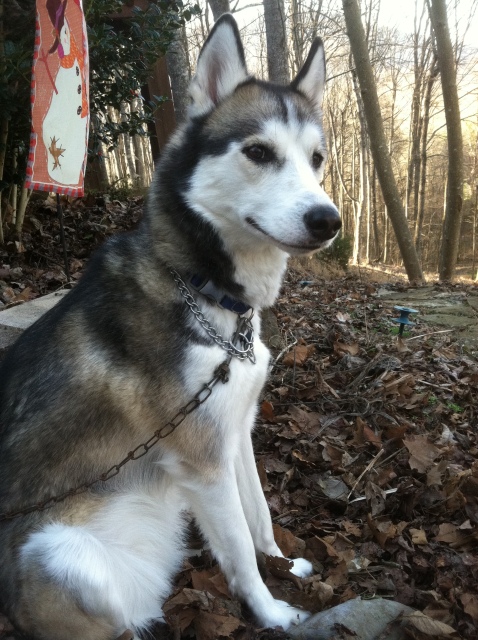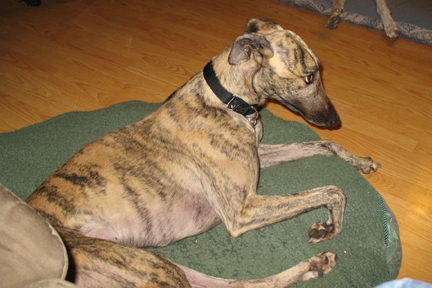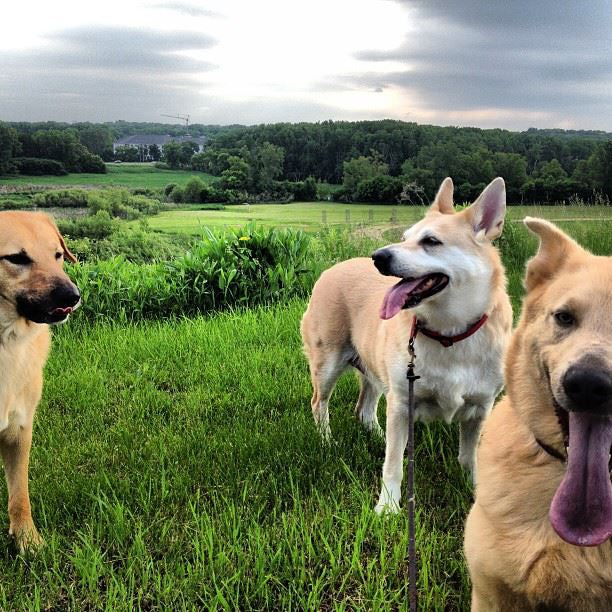QuestionPlease help me...my boston terrier is a spayed female had her since she was a 8 week old she is now 1 year and 3 months. I cant get her to stop chewing on my books on my book shelf i have toher dogs but I know its her because I had the bookcase for a long time before I got her without problems I scolded her when shes caught and have even blocked off the book case with a peice of wire/tied around the case bottom but she just stands on her legs chews the upper books to pieces! or removes the rope and goes under or behind the wire. I weont have this little brat eatting my books there worth alot to me. and my dogs have lots of nyla bones/squeaky toys/rope toys/tug toys/rubber toys plastc toys everything!
AnswerHi Tara,
I recommend spraying "Bitter Apple" on the book case - provided it is dark in color. NOT on the books, as it could damage them.
I would also recommend keeping your boston terror (ha) crated when you can not watch her. When you are with her and you catch her, try shaking a can full of pennies to startle her, or lightly squirt her with a little water.
Some dogs take longer to outgrow the puppy stage and it sounds like she is having that problem.
I have pasted below an article that I found on a website: www.paw-rescue that org that may have some tips that you'll find useful.
Cathy
The following is adapted from the article, PREVENTING DESTRUCTIVE CHEWING By Sarah Wilson, Greatpets.com
All puppies chew. What you can control, both for his safety and your sanity, is what the pup chews. Controlling unwanted chewing is not difficult. Here are the basics:
* Accept the Inevitable
Your puppy will chew. He isn't a bad puppy. He isn't defiant.
He's just a pup. Some pups, like Retrievers, chew a great deal for a long time. Many such dogs can't be left unsupervised until they are two or more years old. Don't rush things.
Behavior is much easier to prevent than to change.
* Supply Good Toys
Good toys mean safe, long-lasting dog toys not used human items. Dog toys teach him to focus his chewing urges on rubber, nylon or non-splintering bones. Used human items encourage him to seek out fabric or things that smell strongly of you.
* Supervise
If you can't see him, you can't help him make the right choices. He has to be in your sight all the time or confined (during the training phase).
If you see him starting on a table leg, tell him sharply (not loudly) to "Leave it!" then redirect him to a toy and praise him. Whenever you give your dog a 'No,' give him a 'Yes' as well.
* Deter
There are plenty of anti-chew products that a pet owner should apply to all electrical cords a pup can reach. That way, if you miss the moment, your pup will not be hurt and he will get yet another lesson in what should not be chewed.
Such simple measures will get you through puppyhood with minimal damage.
WHY DID MY DOG START CHEWING?
"My Yorkie Toby, who is now 10 months old, has always been a very good puppy up until last month when he started chewing on everything in sight. He has ruined many shoes, belts and furniture and doesn't understand why he can't continue chewing on what he wants. How can I train him to chew on his own stuff? Toby has tons of chew bones and toys, but isn't very interested in them anymore. Is it time to replace his toys with new ones?"
SARAH'S COMMENTS
Since Toby was a nonchewer up until last month, this situation begs the question -- what happened last month? Did someone move out or in? Did a work schedule change? Is he chewing when you are home? Does he make sure you see him chewing or "sneak" off to chew?
Regardless, here's what I would do:
* Keep him in sight, on lead or confined in a crate or small room.
* Put away things he likes to chew.
* Keep doors closed to rooms you do not want him in.
* Work on his "Leave it" and "Out" commands.
* Teach him to work for a living -- perform a positive behavior in order to earn attention, food, treats, walks, and playtime. This will help establish you as leader and prompt him to pay attention to you.
* Give him more exercise.
* Stay CALM when you see him chewing. If need be, let him drag a leash around attached to a FLAT, nontightening collar WHEN YOU ARE HOME so you can easily get a hold of him to CALMLY remove the item if he chews on something.
* When possible, apply an anti-chew product at items he likes to gnaw on.
* Stuff a sterilized bone or small Kong toy with cheese or peanut butter. Kongs are excellent chew toys. For creative ways to use them, see http://www.kongcompany.com/how2use.html
* Rotate his toys to help keep him interested in them.
* If he is on puppy food, consider changing him to a good quality adult food.

 Border collie help
Question
Miaya
Hi
We have a 16 week old border collie.
Border collie help
Question
Miaya
Hi
We have a 16 week old border collie.
 Is putting my dog in a cage a good form of punishment?
Question
Blue
My Siberian husky, Blue, as been b
Is putting my dog in a cage a good form of punishment?
Question
Blue
My Siberian husky, Blue, as been b
 My dog just cant seem to get the hang of peeing or pooping outside.
Question
This is Trevor
Im a twin and I am a boy. My si
My dog just cant seem to get the hang of peeing or pooping outside.
Question
This is Trevor
Im a twin and I am a boy. My si
 Adult Greyhound Howling
Question
Lisette
Hello Kathleen,
Thank you for taking
Adult Greyhound Howling
Question
Lisette
Hello Kathleen,
Thank you for taking
 traumatic
QuestionI have a 6 lb Yorkie that is a rescue, weve had
traumatic
QuestionI have a 6 lb Yorkie that is a rescue, weve had